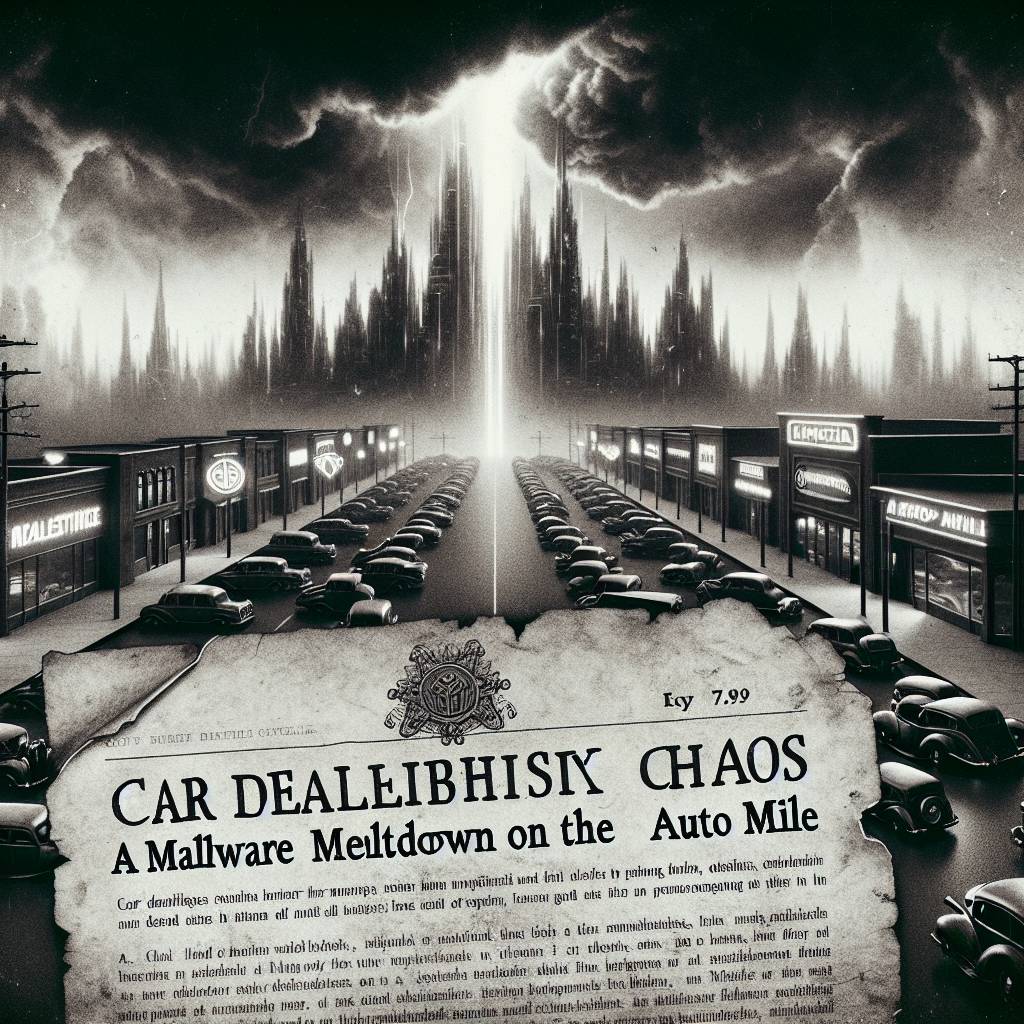Car Dealerships Hit by ClickFix Chaos: A Malware Meltdown on the Auto Mile!
Over 100 car dealerships’ websites served malicious ClickFix code after a third-party domain was compromised. This attack tricked users into copying malware commands, cleverly disguised as an error fix or reCAPTCHA challenge. Russian-speaking cybercriminals have been deploying this social engineering technique to spread malware, targeting unsuspecting visitors with fake reCAPTCHA ClickFix prompts.

Hot Take:
Dear car dealerships, if your website suddenly has a thing for ClickFix, it’s time to hit the brakes and check your backend! In a shocking turn of events, LES Automotive decided to turn into LES “Auto-matic malware distributor.” Move over, cybercriminals; Russian-speaking hackers are taking the wheel, and they’re not here for a test drive. Now, if only they’d use their powers for good, like fixing my car’s mysterious rattles…
Key Points:
- Over 100 car dealerships’ websites compromised due to a supply chain attack on a third-party service, LES Automotive.
- ClickFix, a social engineering malware technique, used to deploy malicious commands via fake error prompts or reCAPTCHA challenges.
- Malware copies commands to clipboard and uses keyboard shortcuts to execute them, infecting the user’s machine.
- Russian-speaking cybercriminals have been leveraging ClickFix in various sectors, including a recent campaign targeting hospitality.
- SectopRAT malware was distributed to dealership website visitors, using PowerShell commands to deploy payloads.
Driving into the Cyber Abyss
It seems like the newest car dealership feature isn’t a flashy sunroof or high-tech navigation system but a sneaky malware attack! Over 100 websites found themselves unwitting participants in a cyber joyride thanks to a supply chain attack on LES Automotive. This isn’t about car warranties or extended service plans, but rather a cunning cybercriminal plot using ClickFix to convince users to run malicious commands on their own devices. If this doesn’t make you want to kick your computer into overdrive, I don’t know what will!
ClickFix: The Cybercriminal’s Favorite Mechanic
ClickFix might sound like a handy tool for quick online fixes, but in the hands of cybercriminals, it’s like handing them the keys to your digital kingdom. By disguising their malicious intentions behind innocent-looking error prompts and reCAPTCHA challenges, they trick unsuspecting users into copying harmful commands. Now your computer might not just be auto-updating; it could be auto-infecting too! We’ve heard of clickbait, but ClickFix takes that to a whole new level.
Russian Hackers: From Russia with ClickFix
Forget James Bond villains; these Russian-speaking hackers are the real masterminds of cyber espionage. Since April 2024, they’ve been escalating their use of ClickFix, targeting sectors far and wide. With Microsoft raising alarms about their hospitality industry escapades, it’s clear that these hackers aren’t just in it for the data. They want to spread malware like it’s the next big trend. Perhaps they should consider starting a “Malware of the Month” club.
PowerShell: The Secret Ingredient
When it comes to infecting systems, these cybercriminals have a secret weapon: PowerShell commands. By leveraging this powerful scripting language, they deploy payloads with the precision of a well-tuned engine. It’s like bringing a bazooka to a knife fight, except the bazooka is filled with malicious code designed to infiltrate and control your systems. Randy McEoin, the security researcher who discovered this plot, even found Russian comments in the JavaScript code. Apparently, the hackers didn’t get the memo about being subtle!
A Dynamic Drive-by Infection
One of the most intriguing aspects of this attack is how it dynamically serves scripts. Imagine visiting a car dealership website to browse the latest models, only to have a malicious script sneakily inject itself into your browsing experience. Most users were served benign versions, lulling them into a false sense of security. It’s like offering someone a ride in a nice car, then swapping it with a rust bucket halfway through. Always check the fine print, folks; it’s not just for car leases anymore!
In conclusion, this cyber escapade is a stark reminder that even the most mundane of websites can become a breeding ground for malicious activity. As you navigate the digital highway, keep your cybersecurity defenses in top gear and your antivirus software revved up. Because in this digital world, you never know when you’re about to take an unexpected detour into Malwareville!
